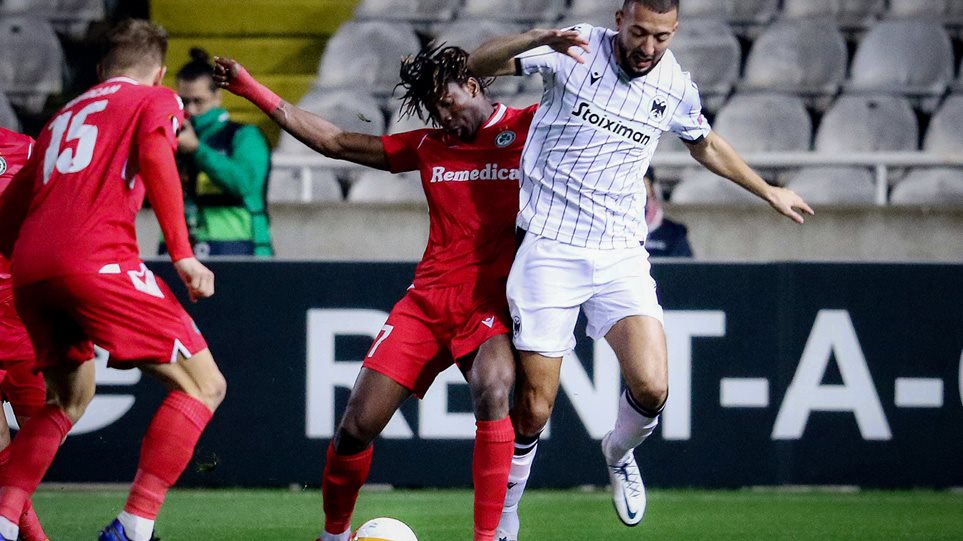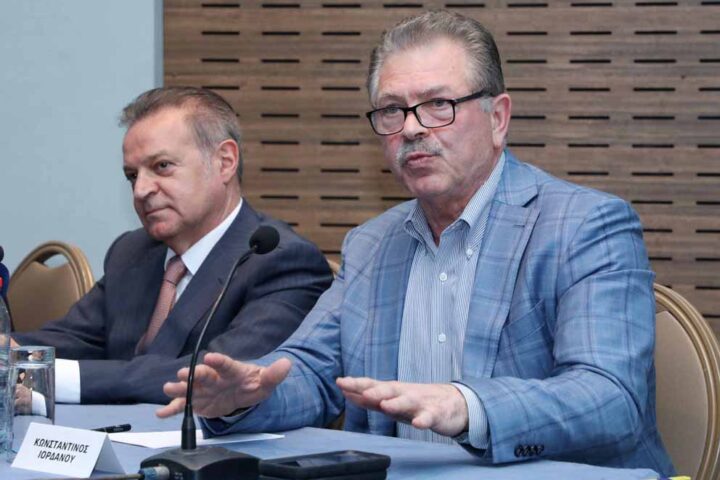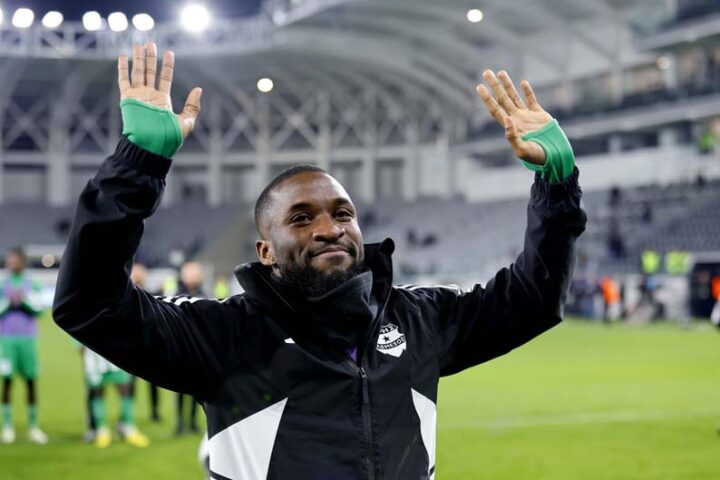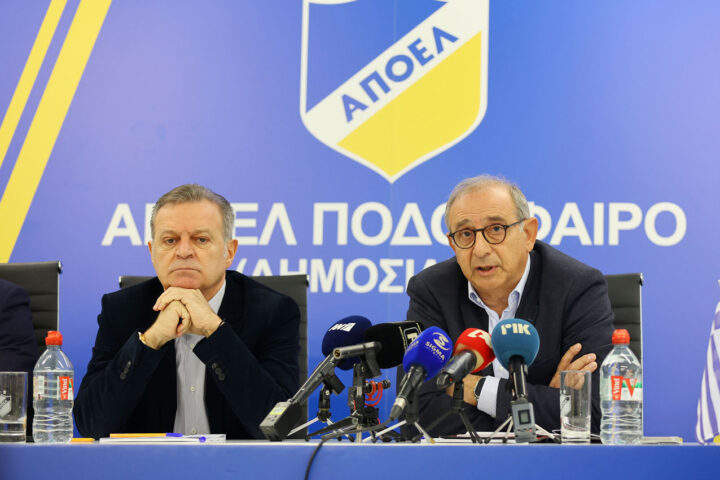Battered Cyprus football has not only emerged fairly unscathed from the coronavirus crisis but is also drawing the attention of Cypriot and foreign investors willing to inject serious cash.
Cypriot clubs overspending in recent years, coupled with the pandemic, pushed some clubs close to bankruptcy; however, wealthy investors are coming to the rescue.
“Cyprus football remains attractive, with income from football equaling 4% of the island’s GDP, as the financial activity surrounding games is close to €1 bln,” said Cyprus Football Association Vice President Nick Nicolaou.
Talking to the Financial Mirror, Nicolaou said: “If we exclude the past two years which saw fans kept out of stadia due to the coronavirus outbreak, then Cyprus first division games had on average of over 7,000 fans. Compared to the population of the island, that is impressive”.
“Cyprus clubs, when managed properly, bring in a good income,” said Nicolaou.
Indicatively, TV rights are what kept clubs afloat this year, when they had almost no income from ticket sales.
“This year, the teams’ turnover was around €69 mln, just €11 mln less than the €80 mln turnover in 2019.”
Topflight teams can benefit anything from close to a million euros to €9 mln for a season’s TV coverage.
Nicolaou said bigger teams who participate in the European (UEFA) tournaments such as the Champions League and Europa League see an inflow of several million more.
Teams who made their way to the lucrative Champions League group stage have bagged close to €20 mln.
Omonia FC, who started their journey in the Champions League but found themselves in the Europa League group stage after being eliminated from the CL playoffs, bagged more than €8 mln.
“This year, UEFA is introducing a third tournament, the Europa Conference League.
“Although money will not be as much as the other two competitions, it’s still good extra income.
“Most of all, an opportunity for teams who may not have the financial reach to build squads for a CL or Europa group stage spot.”
Nicolaou explained the Conference tournament would prove to be beneficial for teams from smaller leagues such as Cyprus.
“As of next season, Cyprus will have five European tournament tickets. More to go around, increasing the competition within the league itself.”
Reportedly, a team making its way to the UEFA Conference League will have a guaranteed income of €2.94 mln.
Every victory will be rewarded with another €500,000, and every draw will generate €166,000.
UEFA, in recent years, has asked clubs to prove that they are keeping their finances in check.
Teams face points deduction or even relegation if their finances are a mess.
“This has helped clubs keep their finances in check, making it easier to attract investors. It has also kept clubs from overspending, which had brought big clubs on the verge of disaster.
“Cyprus football is a dynamic industry with potential if managed soundly.”
Best example
The best example of how a team in the red could be turned around to generate profits is Omonia FC, known as the people’s club.
Its flagging fortunes were revived after taken over by millionaire Stavros Papastavrou in 2018. He pledged to invest more than €30 mln.
Nicosia’s Greens have just completed their most successful season after winning the league and participating in a European tournament group stage for the first time in its 73-year history.
Omonia was also awarded first place in the league last year but not the title as the season was cut short due to the coronavirus pandemic.
The New York-based investor Papastavrou made good on his word from day one, saving Omonia by directly injecting €1.5 mln, crucial to pass UEFA’s financial criteria, which the club could not have met otherwise.
He also absorbed €9.5 mln of the club’s €15 mln debt, promising the team would receive €5 mln every year for transfers and the payroll.
Omonia’s group stage qualification had brought in another €8 mln, of which €5 mln is a bonus for participating in the Champions League playoffs after being knocked out by Greek opponents Olympiacos Piraeus.
Omonia’s success in the Europa League proved beneficial for Cyprus football, as it keeps the country’s overall standing in 15th place.
It means Cyprus will have one team playing next season’s Champions League, one in the Europa League, and two in UEFA’s third competition, the Europa Conference League.
German investors
Omonia’s arch-rival APOEL Nicosia have accumulated €16 mln debt, originally reported to be €24 mln, reduced after an arrangement with the state to pay off money owed in instalments within the next 15 years.
Currently, Prodromos Petrides, Chairman of APOEL FC, is negotiating with a group of German investors.
Sources close to the team told the Financial Mirror they have already injected cash into the club.
Two days after the company’s AGM, Petrides announced a deal with Giorgi Okriashvilli, a Georgian international, snatching him before signing for Omonia for a reported €300,000.
The German investors are expected on the island soon to inspect APOEL’s training facilities before getting down to the nitty-gritty of the deal.
Anorthosis
Anorthosis Famagusta, traditionally among teams fighting for trophies, has its own local investor in Cypriot businessman Christos Poullaides who has kept the club going in recent difficult years.
Reportedly, Poullaides is in negotiation with a group of investors from central Europe.
AEK Larnaca also has local funding, from businessman Andy Karapatakis heading the team’s rebirth that not so long ago was relegated to the second division.
Under Karapatakis, AEK made its way to the Europa League in 2018, playing the likes of Bayer Leverkusen and Zurich FC.
Paphos FC was recently taken over by Russian Investors, headed by Russian-Hungarian businessman Roman Dubov.
Paphos has been fighting to become a top-six club without much success.
However, Paphos has made impressive signings, such as Jason Puncheon, a veteran Premier League midfielder.
Puncheon made a name for himself playing for Crystal Palace, Blackpool, Queens Park Rangers and Southampton.
Smaller clubs like Aris Limassol, just promoted to the topflight, have attracted a “young Russian investor” active in the town.
The investor is said to be promising big signings.
Aris’ board is reviewing the investor’s proposal and is expected to invite him to take over the club.










